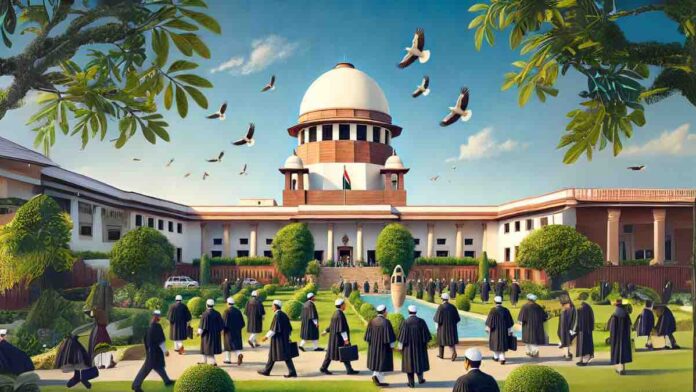In a significant decision, the Supreme Court of India reaffirmed the constitutional guarantee of equality under Article 14, declaring that differential treatment in employment benefits is unjustifiable. The judgment, delivered by a bench comprising Justice Pamidighantam Sri Narasimha and Justice Sandeep Mehta, reversed the Punjab and Haryana High Court’s decision, ensuring that work-charge employees are




